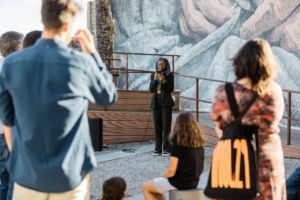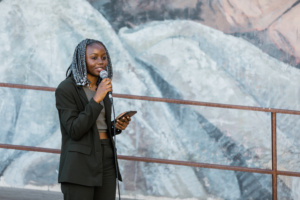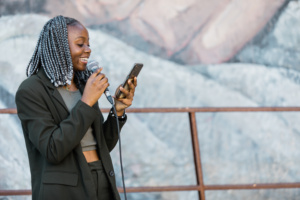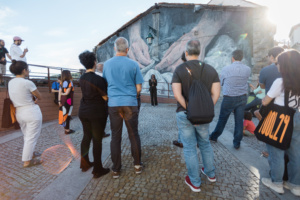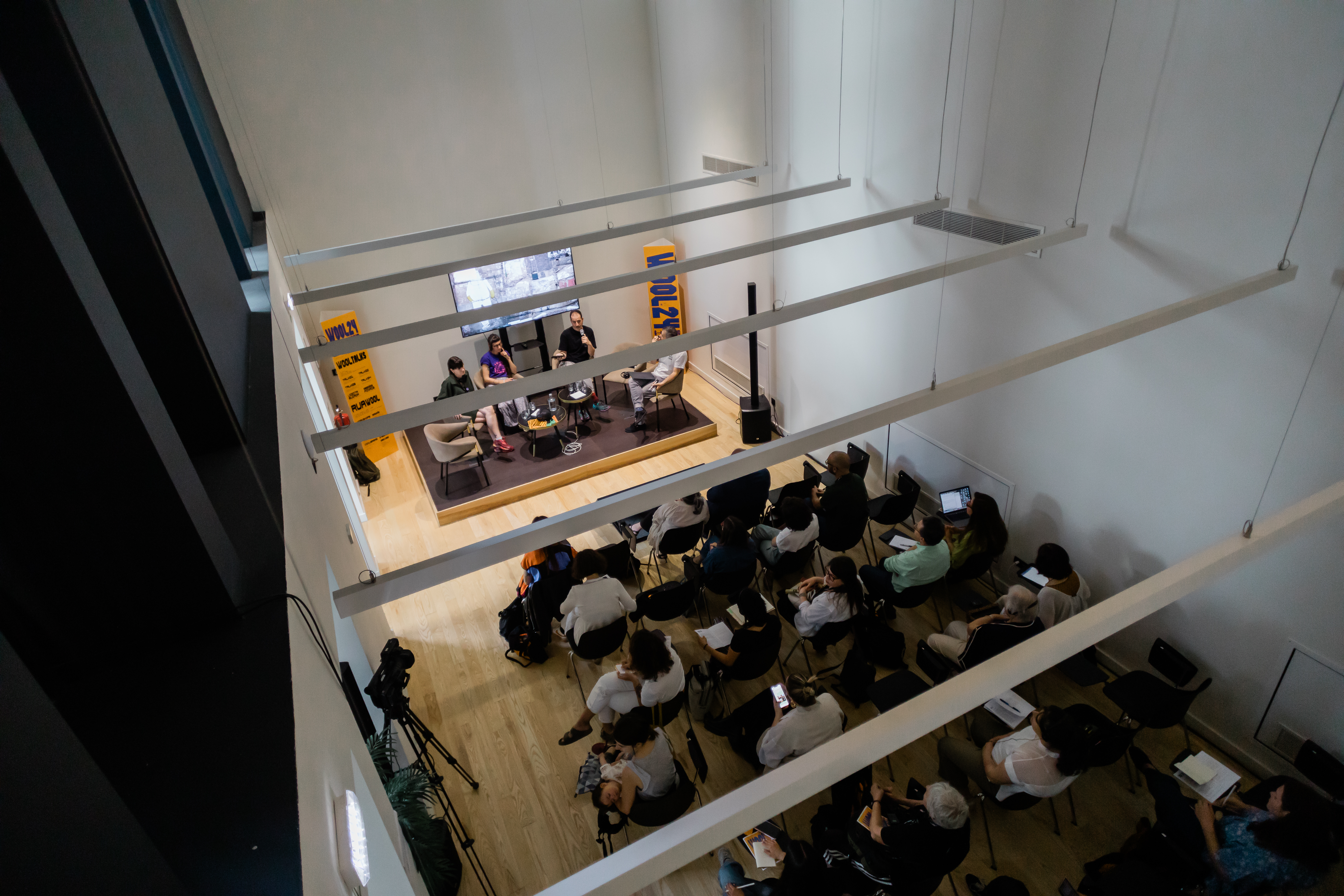
WOOL TALKS 2024
14 June 2024
Talk 01 – ““How do these urban expressions work in low-density territories and rural contexts?”
Talk 02 – “Why and how to value women in the Visual Arts?”
Talk 03 – “Can Urban Art be a public policy instrument for the development of territories?”
Talk 04 – “Can Urban Art help build community?”
Guided tour of the WOOL Urban Art Route
Closing Remarks
The WOOL Talks offered simultaneous translation: English-Portuguese / Portuguese-English.
CIEC – Centro de Inovação Empresarial da Covilhã _ Rua António Augusto Aguiar, 60
The 2024 edition of WOOL | Covilhã Urban Art has the support of Turismo de Portugal / Visit Portugal (co-financing), Covilhã City Council (co-financing), BPI | ‘la Caixa’ Foundation (Patron) and a number of other national and local companies.
In 2011, WOOL | Covilhã Arte Urbana presented itself as the first festival of these expressions of Contemporary Art in Portugal, introducing them as tools capable of promoting social, cultural, economic and/or tourist transformation in a community and territory. It aimed to contribute to urgently needed cohesion, sustainability and cultural decentralisation. Throughout this long and unique journey, we have learnt about other national and international projects with similar missions and/or practices, and the debate on this unique and distinctive artistic and cultural creation and production in public spaces, outside of urban areas and in a rural context, calls for careful reflection.
In this 11th edition of WOOL, we are launching the WOOL TALKS – International Conference on Urban Art. They are a response to the desire to bring to the unique context of WOOL and Covilhã as a space for thought, debate and sharing about this sector, this artistic area and other dimensions with which it dialogues.
The theme that will guide us throughout this first edition of WOOL TALKS will be the relationship between “Urban Art and low-density territories” and aims to reflect on and produce knowledge about these unique and unusual stages of cultural and artistic production. This ‘low density’ dimension will also be the focus of other readings associated with the artistic sector and its potential as a transforming agent.
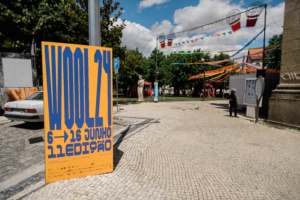
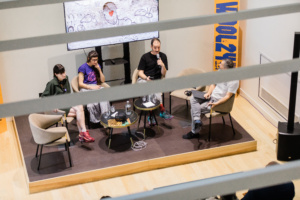
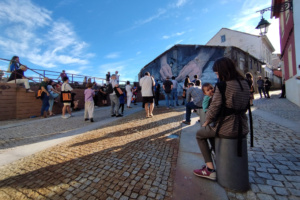
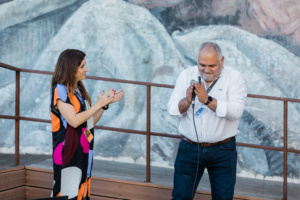
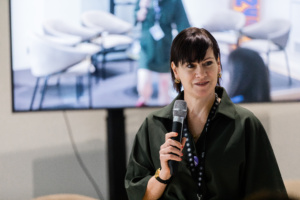
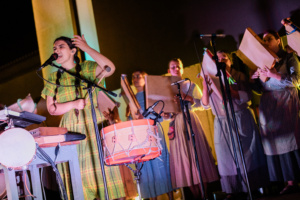
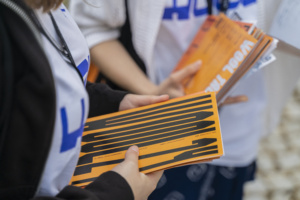
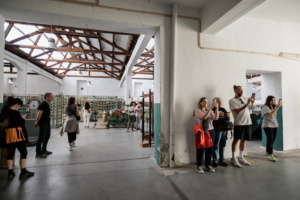
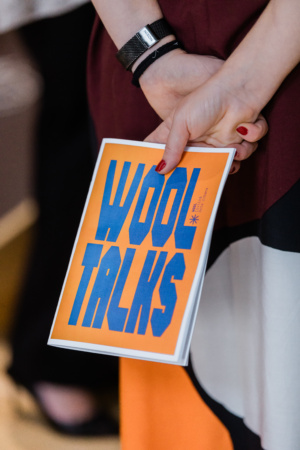
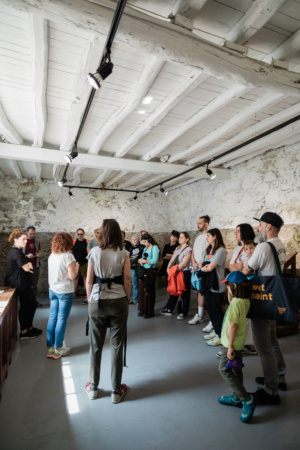
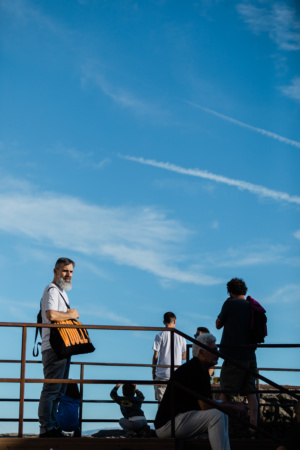
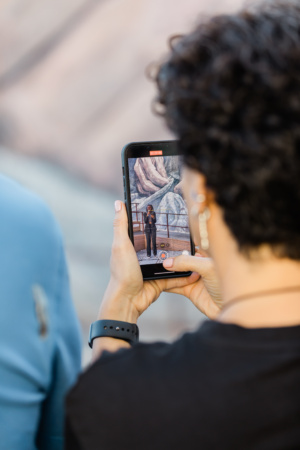
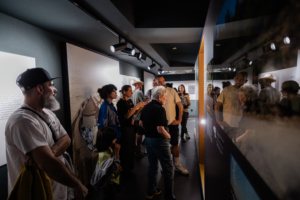
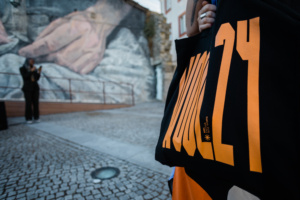
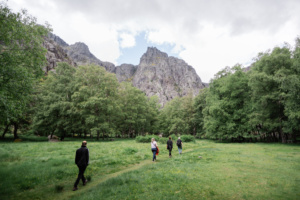
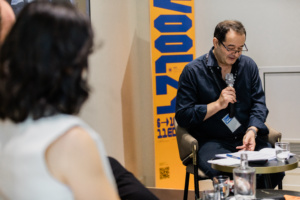
OPENING Session
Lara Seixo Rodrigues, co-founder of WOOL
José Miguel Oliveira, Councillor of Covilhã City Council
Anabela Freitas, Vice-President of Turismo do Centro
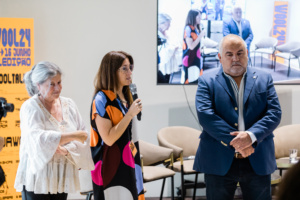
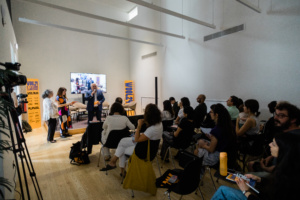
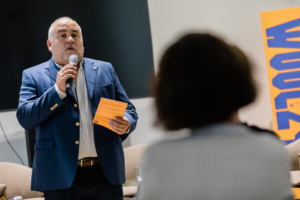
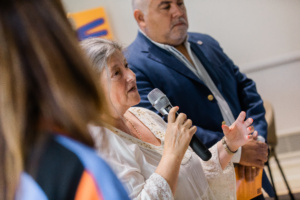
TALK 01
“How do these urban expressions work in low-density territories and rural contexts?”
The first TALK of the day brought to Covilhã a group of festivals that operate in low-density and/or rural areas. This condition has not prevented them from being, on the one hand, ‘the oldest Urban Art festival in the world’, ‘the second oldest Urban Art festival in the world’ or one of the most interesting festivals still active, whether due to their geography, community building or curatorial proposal.
We started the debate with the question “How do you work with these urban expressions in low-density territories and rural contexts?”, sharing practices, methodologies and formats, but we also wandered into other questions, such as why these practices are so unique in these territories, the objectives inherent in creating these projects, the results, the difficulties of taking action, among many others.
Speakers:
Susan Hansen, researcher representing NUART FESTIVAL – Stavanger (Norway).
Alice Pasquini, artist and founder of CVTà Street Fest – Civitacampomarano (Italy)
Laura Lara Sánchez, mediator and co-founder of Parees Fest – Oviedo (Spain)
Alfredo Martínez Pérez, co-founder of ASALTO – International Urban Art Festival, Zaragoza (Spain)
Lara Seixo Rodrigues, co-founder of WOOL | Covilhã Arte Urbana – Covilhã (Portugal)
Moderator:
Luis García Alamán, co-founder of ASALTO – International Urban Art Festival, Zaragoza (Spain)
Recording of TALK 01
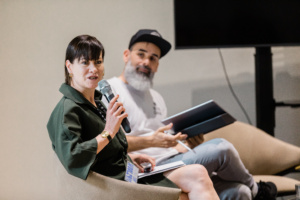
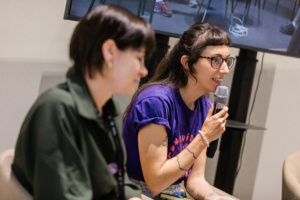
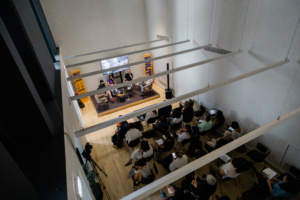
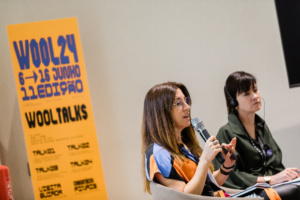
TALK 02
“Why and how to value women in the Visual Arts?”
The second TALK led us to further reflections on the transformative and democratising potential of Urban Art. Starting with the question “Why and how do we value women in the Visual Arts?” we instigated necessary, wide-ranging and urgent reflections on this topic, which allowed us to return to new or renewed questions about the role of this sector and of each of us, as agents of culture, in building a more inclusive, diverse and fair artistic ecosystem.
Speaker:
Marina Bortoluzzi, art curator and contemporary researcher – São Paulo (Brazil)
Moderator:
Vitor Belanciano, cultural journalist – Lisboa (Portugal)
Recording of TALK 02
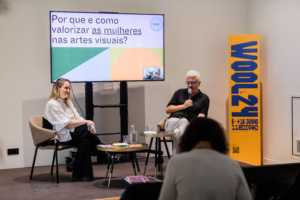
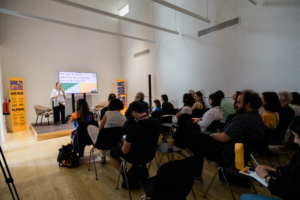
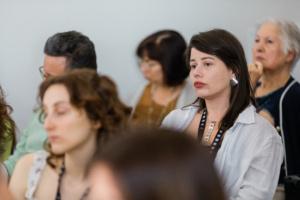
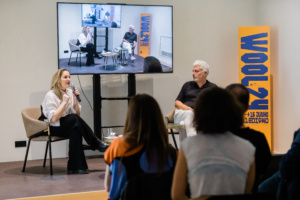
TALK 03
”Can Urban Art be a public policy instrument for the development of territories?”
There are countless examples of geographies, from the four corners of the world, of the most varied scales, which spontaneously or strategically, by private initiative or by public organisations and/or political decision-makers, are today taking on the role of stages for artistic creation in public spaces. This is the most democratic and democratising place, where all of art’s capabilities can be harnessed, where an audience of enormous diversity can be fully integrated and involved, without distinction or discrimination. So can we question the use of these artistic expressions as mere decoration and take them on as tools for transforming a territory or community? Can Urban Art projects be vehicles for social, cultural, urban, economic or political change? Can they be operators and/or mediators of awareness-raising operations, inclusion or social and territorial cohesion, and therefore, “Can Urban Art be an instrument of public policies for the development of territories?”
Speakers:
Hugo Cardoso, coordinator of the Urban Art Gallery – Lisbon City Council, MURO Festival – Lisbon (Portugal)
Isabel Simões Pinto, Councillor for Culture, Estarreja Town Council, ESTAU Festival – Estarreja (Portugal)
María Esther Gutiérrez Morán, Primera de Territorio, Igualdad y Cultura de la Diputación de Cáceres, Muro Critico Festival – Cáceres (Spain)
Moderator:
João Aidos, engineer, manager and cultural programme maker – Coimbra (Portugal)
Recording of TALK 03
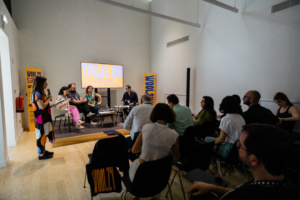
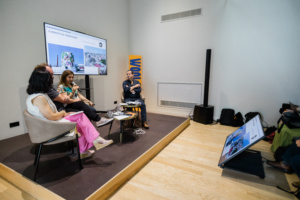
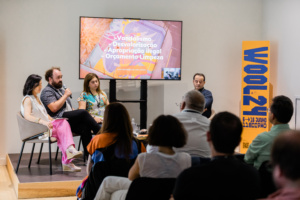
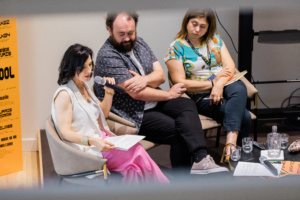
TALK 04
“Can Urban Art help build community?”
The public space will always be par excellence the true stage for interaction, exchange, awareness and the construction of Humanity, dignity and citizenship, in all its most varied dimensions. Assuming that art and culture are unique tools for critical thinking and unique engines for restoring and strengthening a sense of belonging to a community or territory and, consequently, contributing to its (re)construction and valorisation, we can understand that “Can Urban Art help build community?” Can we affirm that artistic creation in public space, that which starts from a participatory and/or community-based construction, can help achieve the results and realities that respond to the challenges of contemporary society?
Speaker:
José Carlos Mota, lecturer and researcher – Aveiro (Portugal)
Moderator:
Vitor Belanciano, cultural journalist – Lisboa (Portugal)
Recording of TALK 04
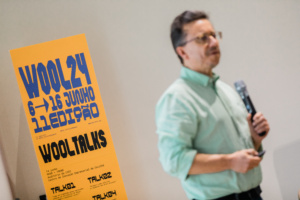
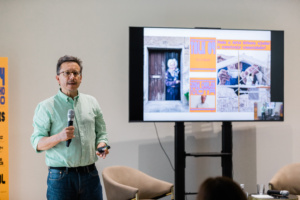
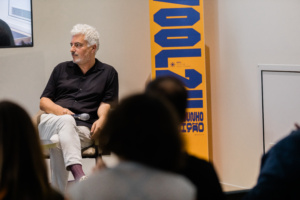
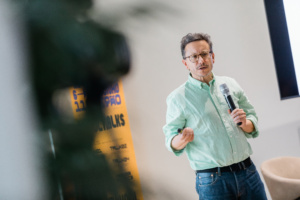
Guided tour of the WOOL Urban Art Route, led by curator and WOOL co-founder Lara Seixo Rodrigues.
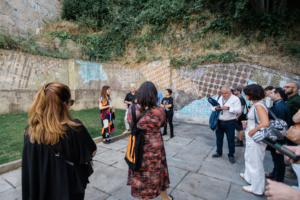
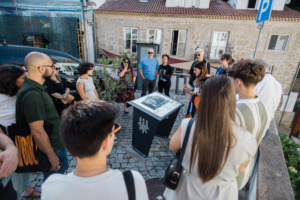
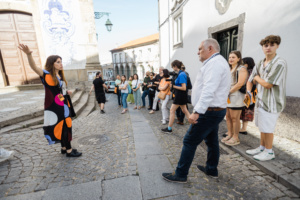
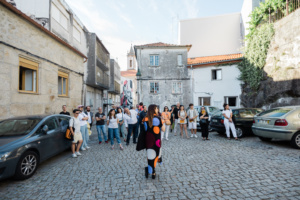
CLOSING REMARKS by the poet Alice Neto de Sousa (Portugal)
